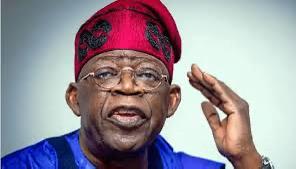In 2024, the stark reality of Nigeria’s economic landscape has prompted a national outcry, particularly as the price of one liter of petrol skyrocketed to an unprecedented N1,080, a figure eerily analogous to the cost of a brand-new Peugeot 504 in 1977.
This distressing scenario begs the question: What went so tragically wrong over the last 47 years? While it may be easy to cast blame on President Bola Ahmed Tinubu for the current economic predicament, a deeper examination reveals that the roots of this crisis lie in systemic failures of governance and the inefficiencies perpetuated by previous regimes.
The Fallout of Historical Governance Failures. To understand the sharp economic downturn Nigeria faces today, we must first acknowledge the cumulative impact of decades of mismanagement, corruption, and inconsistent policies that have plagued the nation since its independence. Governance in Nigeria has often been characterized by short-term thinking, a lack of accountability, and policies that favor immediate political gains over sustainable economic growth.
The economic challenges Nigeria faces today are not a direct consequence of President Tinubu’s administration, but rather the result of the cumulative impact of governance decisions made long before his tenure. From squandered oil revenues in the 1980s to recurring failures to diversify the economy, successive governments have failed to build a resilient economic framework. This lack of foresight has left the country vulnerable to global economic shocks, fluctuations in oil prices, and rising inflation.
Moreover, the prolonged mismanagement of key sectors, such as agriculture and manufacturing, has contributed to an over-reliance on oil as the mainstay of the economy. In 2024, as petrol prices soar, citizens are reminded of the burdens imposed over decades by ineffective policies that failed to harness the nation’s potential. The historical context of economic downturn illustrates the urgency of reevaluating past governance strategies, underscoring that the fault lies not solely with the current administration, but deeply rooted in systemic failures of governance.
The Call for Systemic Change. As Nigerians grapple with the rising cost of living and diminishing purchasing power, it is crucial to recognize that a significant part of the blame must rest on the shoulders of previous regimes. These administrations implemented policies that created dissent rather than development, breeding a culture of dependency rather than one of empowerment.
Furthermore, corruption has eroded public trust and undermined institutional integrity across various sectors. Access to education and healthcare has been compromised, perpetuating a cycle of poverty and inhibiting the country’s potential for growth. The education system, once celebrated for its richness, now struggles to meet global standards, producing a workforce ill-equipped to drive economic innovation. The ramifications of these failures are evident as the societal fabric unravels under the weight of economic distress.
It is imperative, therefore, to rally together and push for systemic change that addresses these historical grievances. The road ahead necessitates a reimagining of governance, with a focus on transparency, accountability, and a commitment to citizens’ welfare. It is essential for the Tinubu administration to learn from past mistakes while forging a new path that prioritizes economic diversification, investment in human capital, and infrastructural development.
A Collective Effort Towards Recovery.
Better days can indeed be ahead for Nigeria, but achieving this requires a united front. Economic recovery is not the sole responsibility of the President or his administration. It calls for a collective effort from citizens, civil society, and the private sector to build a robust economy that can withstand the vicissitudes of global markets.
The importance of civic engagement cannot be overstated. Citizens must hold their leaders accountable, demanding policies that prioritize long-term economic health over political expediency. Moreover, stakeholders across industries must collaborate to foster innovation and build a diverse economic landscape that utilizes the nation’s rich resources and potential.
While the current state of Nigeria’s economy may seem dire, the challenges at hand can be viewed through the lens of historical governance failures rather than a singular administration’s fault. By acknowledging this perspective and working collectively towards systemic change, Nigeria can rise from the ashes of its economic downturn and pave the way for a prosperous future. Better days are indeed ahead if the lessons of the past are learned, embraced, and transformed into actionable strategies for growth and stability.
Otunba Abdulfalil Abayomi Odunowo
National Chairman AATSG
Mobile: +2349053535322
Sunday 26th October 2024.



























